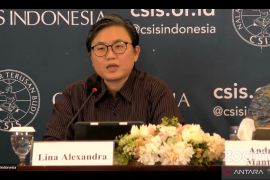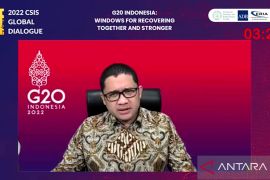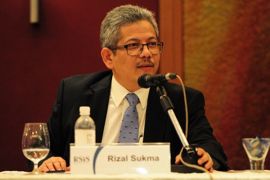"If a general election is held today, all parties will suffer a drop in voting percentage compared to the 2009 general elections as voters have been disappointed by the political parties and therefore are confused and indecisive," CSIS researcher Sunny Tanuwidjaja said, as he presented the findings of a survey on 2012 national politics on Monday.
Sunny said under such conditions legislative elections tend to be become very competitive not because of increasing competition but because no party stands out.
According to the survey, the ruling Democratic Party may suffer the biggest drop in voting percentage of 8.25 per cent and supported only by 12.6 per cent.
Golkar Party, meanwhile, may get the support of 10.5 per cent voters, down 3.95 per cent from the total it won in the 2009 general elections, while the Indonesia Democratic Party Struggle (PDIP) may win 7.8 per cent votes, down 6.23 per cent.
"Interestingly, people said they had no choice when asked about the political party they would like to vote for," he said.
"The number of people shunning polls may increase in view of the trends in the last three general elections and due to the declining public confidence in the political parties," he said.
Sunny said political parties that rely on charismatic personalities and the traditional support base will face difficulties in winning over the indecisive voter because so far no leading figures are in the fray, like in the past general elections.
"Public view towards the government which they consider is stagnant is found to have affected the Democratic Party. However, even the opposition parties are considered no better and so people tend to be confused when making a choice," he said.
"Though there is room for a new party to emerge, there are also challenges it has also to face such as the exclusivity of the
general elections system and public mistrust in political parties," he said.
(T.P012/H-YH/INE/F001)
Editor: Priyambodo RH
Copyright © ANTARA 2012












